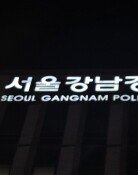U.S. Bombs Saddam Hussein`s Hideaway
U.S. Bombs Saddam Hussein`s Hideaway
Posted April. 08, 2003 22:02,
U.S. forces advanced into the center of the Iraqi capital city, Baghdad, and seized two presidential palaces and several government buildings on Tuesday. They continued to aim their assault directly at Saddam Hussein for a second day. U.S. forces took up positions in the city center of Baghdad for the first time and fought for the second consecutive day.
The U.S. forces` offensive was reinforced in the air by A-10 “tank-buster” planes and two Apache helicopters putting more pressure on the Iraqi regime.
On the ground, U.S. forces and Iraqi forces met in battle along the Tigris River which goes through the center of the city; U.S. forces were on the west and Iraqi forces were on the east side.
Three battalions of the 2nd Brigade of the 3rd Infantry Division took the initiative to enter the city of Baghdad and have no plans to retreat, reported CNN.
U.S. officials believe there is a possibility that Saddam Hussein and his two sons were killed by Monday’s air raids, reported MSNBC.
An intelligence agent operating in Baghdad delivered ‘a very credible piece of information’ on the whereabouts of Saddam Hussein to U.S. Central Command and U.S. forces carried out an attack with a single B-1 bomber, which dropped four precision-guided, 2,000-pound, bunker-penetrating bombs at the location, the officials said. The Pentagon and State Department sources said they are very convinced that everyone there was killed.
The British BBC (Internet Edition) reported that if President Hussein survived and escaped Baghdad, he would go to Tikrit, the leader’s hometown and attempt his last stand there.
Iraqi TV could not air the “morning war progress report” which had been broadcast since March 8, the outbreak of the war. Other television programs which only aired President Hussein`s appearances or songs attempting to instill patriotism also were discontinued.
U.S. air raids killed one correspondent of the Arab-language television network al-Jazeera who was in its Baghdad office around the Meridian Hotel and attacked the Palestine Meridian Hotel where many foreign correspondents were staying.
U.S. high-ranking officials said the war is expected to continue for quite a while but though “Hussein regime is in a state of paralysis,” reported the Washington Post (Internet Edition).
Meanwhile President George W. Bush and Prime Minister Tony Blair continued their 2nd day of discussions on the Iraqi interim regime and other postwar issues on Monday in Belfast, Northern Ireland. However, they could not come to agreement on the post-war role of the U.N. Bush insisted that U.S. and Britain take a major role while Blair insisted that the U.N. be the overarching presence in post-war Iraq.
Ja-Ryong Koo bonhong@donga.com







